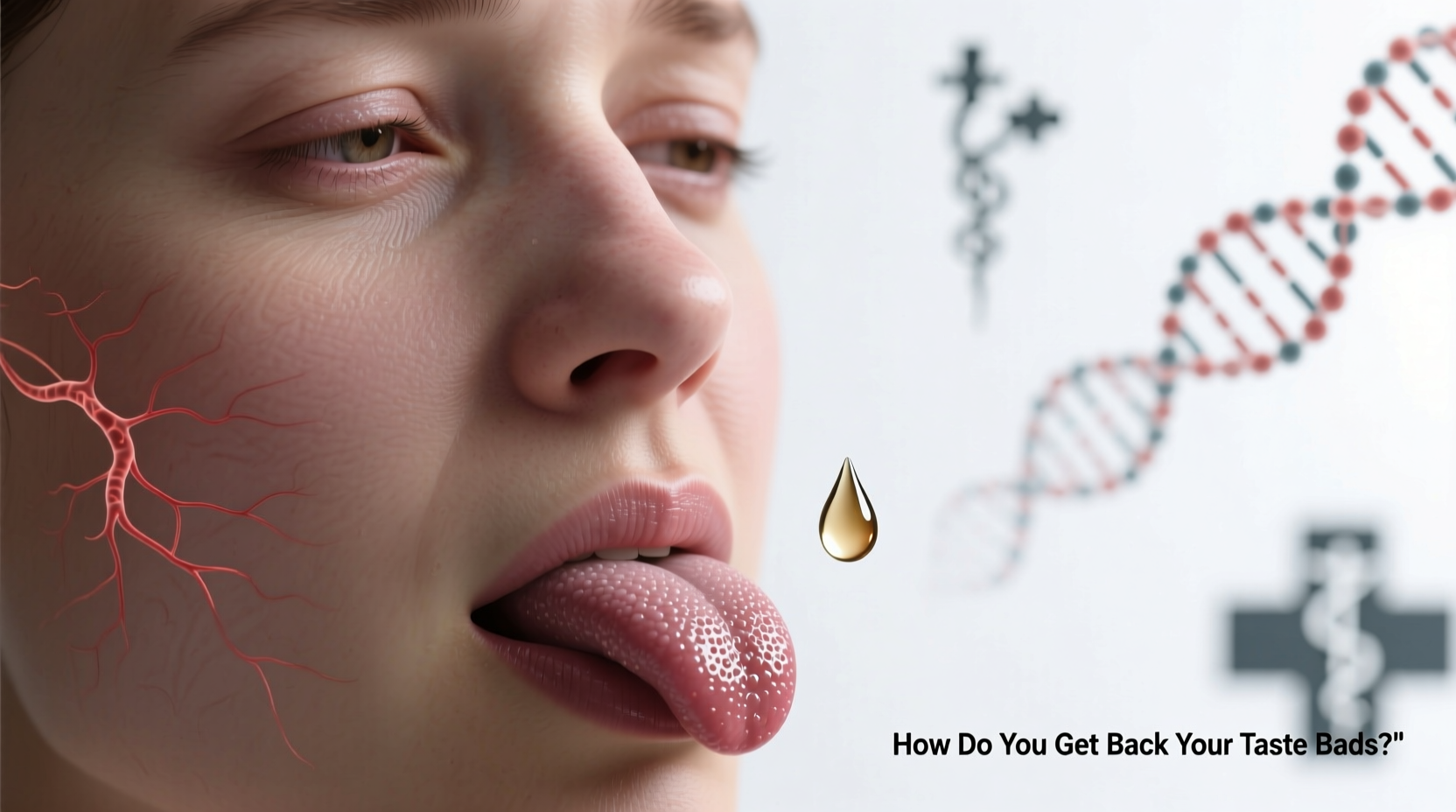If you've lost your sense of taste, recovery depends on the cause. Most temporary taste loss from colds or sinus infections resolves within 2-4 weeks as inflammation decreases. Post-viral taste disorders (like after COVID-19) typically improve within 3 months for 80% of patients. Zinc deficiency-related taste issues often respond to supplementation within 4-8 weeks. Permanent damage from radiation therapy or severe nerve injury has limited recovery options, but flavor enhancement techniques can significantly improve eating experiences.
Have you recently noticed food tasting bland or completely flavorless? You're not alone. Approximately 16% of adults experience taste disturbances at some point, with viral infections being the most common culprit. The good news is that most cases of taste loss are temporary and reversible with the right approach. Let's explore science-backed methods to restore your sense of taste based on the underlying cause.
Understanding Taste Loss: Not Actually About Regrowing Taste Buds
First, let's clarify a common misconception: you don't actually "get back" your taste buds. Humans have 2,000-8,000 taste buds that naturally regenerate every 10-14 days throughout life. What you're experiencing is likely taste dysfunction—a disruption in how your taste receptors, nerves, or brain process flavor information.
According to the National Institute on Deafness and Other Communication Disorders (NIDCD), taste disorders fall into several categories:
| Disorder Type | Description | Common Causes |
|---|---|---|
| Ageusia | Complete loss of taste | Severe nerve damage, advanced radiation therapy |
| Hypogeusia | Reduced ability to taste | Viral infections, medications, head injuries |
| Dysgeusia | Distorted taste perception | Zinc deficiency, chemotherapy, dental issues |
Your Recovery Roadmap: Methods That Actually Work
Step 1: Identify the Underlying Cause
Effective recovery starts with understanding why your taste changed. The most common causes and their typical recovery timelines include:
| Cause | Recovery Timeline | Success Rate |
|---|---|---|
| Viral infections (including COVID-19) | 2-12 weeks | 80-95% full recovery |
| Sinus/nasal congestion | 1-4 weeks | Nearly 100% with treatment |
| Zinc deficiency | 4-8 weeks | 70-80% improvement |
| Medication side effects | Varies | Depends on medication adjustment |
Research published in The Laryngoscope shows that 74% of post-viral taste loss cases resolve completely within 3 months, while only 12% experience permanent changes. This timeline matters because it helps set realistic expectations during recovery.
Step 2: Implement Targeted Recovery Strategies
For Post-Viral Taste Loss
Smell training has emerged as the most effective method for regaining taste after viral infections. A 2023 study in Rhinology found that patients who practiced smell training twice daily had 37% faster recovery than those who didn't. Here's how to do it properly:
- Use four distinct essential oils (lemon, rose, eucalyptus, clove)
- Smell each oil for 20-30 seconds, twice daily
- Concentrate on recalling the scent memory while inhaling
- Continue for at least 12 weeks for best results
For Medication-Induced Taste Changes
Many common medications—including blood pressure drugs, antibiotics, and antidepressants—can alter taste perception. Don't stop taking prescribed medications, but discuss alternatives with your doctor. The American Academy of Otolaryngology recommends:
- Maintaining excellent oral hygiene (brushing twice daily, flossing)
- Using zinc-containing oral rinses (consult your doctor first)
- Trying flavor enhancers like umami-rich ingredients
Step 3: Optimize Your Diet During Recovery
While waiting for your sense of taste to return, strategic food choices make eating more enjoyable. Based on my experience teaching flavor chemistry to home cooks, these techniques work best:
- Texture contrast: Combine crunchy and smooth elements (like toasted nuts in yogurt)
- Temperature variation: Serve foods at contrasting temperatures (chilled soup with warm croutons)
- Acid balance: Use citrus or vinegar to stimulate saliva production
- Umami boosters: Incorporate mushrooms, tomatoes, or Parmesan for deeper flavor perception

When Home Remedies Aren't Enough: Medical Interventions
While most taste disorders resolve with time and home strategies, certain situations require professional help. Consult an ENT specialist if:
- Taste loss persists beyond 3 months
- You experience complete taste loss rather than reduced perception
- Symptoms worsen instead of improving
- You have accompanying symptoms like ear pain or facial weakness
Clinical treatments may include:
- Zinc supplementation (for documented deficiencies)
- Prescription steroid nasal sprays for inflammation
- Medication adjustments under physician supervision
- In rare cases, nerve stimulation therapies
Realistic Expectations: What Science Says About Recovery
Understanding recovery limitations prevents frustration. The University of Florida Center for Smell and Taste reports that:
- Age-related taste decline cannot be fully reversed but can be managed
- Radiation therapy patients often experience permanent changes
- Nerve damage recovery depends on severity and location
- Complete ageusia has lower recovery rates than partial loss
For permanent changes, flavor modification becomes essential. I've worked with many clients who've adapted their cooking to maximize remaining taste sensations through strategic ingredient combinations and cooking techniques.
Preventing Future Taste Problems
While you can't prevent all causes of taste loss, these practices reduce your risk:
- Maintain excellent oral hygiene (gum disease affects taste)
- Stay hydrated (dry mouth impairs taste)
- Get adequate zinc through diet (oysters, beef, pumpkin seeds)
- Protect against head injuries with proper safety equipment
- Manage chronic conditions like diabetes that affect nerve function
When to See a Specialist Immediately
Seek prompt medical attention if taste loss accompanies:
- Facial muscle weakness or drooping
- Difficulty swallowing or speaking
- Sudden hearing changes
- Unexplained weight loss
These symptoms could indicate neurological issues requiring immediate evaluation.
Practical Tips for Daily Living With Taste Changes
While recovering, these kitchen-tested strategies make meals more enjoyable:
- Cook with aromatic herbs like rosemary and thyme that stimulate smell receptors
- Add texture with toasted seeds or crushed nuts for sensory variety
- Use colored plates to enhance visual appeal (vision affects flavor perception)
- Try temperature contrasts—serve warm soups with chilled garnishes
- Focus on umami-rich ingredients like mushrooms and tomatoes











 浙公网安备
33010002000092号
浙公网安备
33010002000092号 浙B2-20120091-4
浙B2-20120091-4